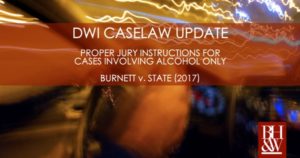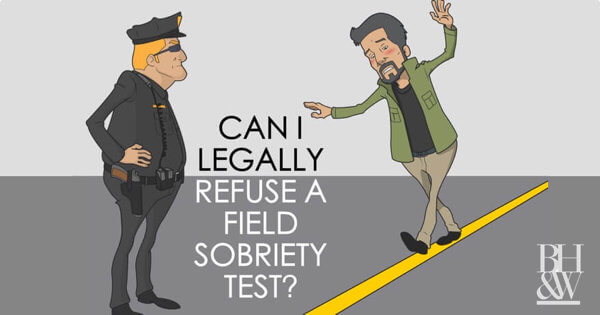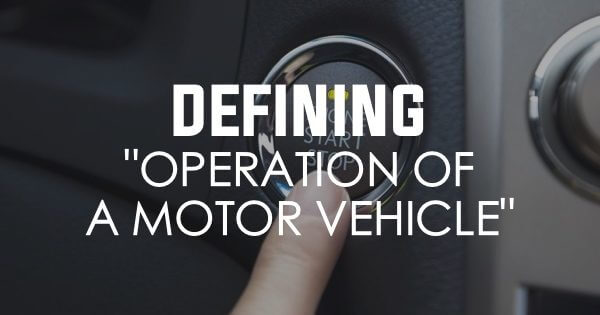Is it Error to Provide a Jury with Instructions When the Statutory Language is not Supported by the Evidence?
 The Court of Criminal Appeals recently handed down a case regarding the State’s ability to use the full statutory definition of “intoxicated” in a jury charge for DWI cases. The issue faced by the court was whether the trial court erred in providing the jury with portions of the statutory language that were not supported by evidence presented at trial.
The Court of Criminal Appeals recently handed down a case regarding the State’s ability to use the full statutory definition of “intoxicated” in a jury charge for DWI cases. The issue faced by the court was whether the trial court erred in providing the jury with portions of the statutory language that were not supported by evidence presented at trial.
Burnett v. State, Court of Criminal Appeals (2017)
The Facts—What Happened?
Burnett was arrested and charged with DWI after rear-ending a vehicle occupied by Bussey and Chappa. When Burnett exited his vehicle both Bussey and Chappa observed him to be intoxicated. Bussey and Chapa smelled the odor of alcohol on Burnett’s breath and noticed his speech to be slurred. Additionally, the first officer on the scene also noticed Burnett to have slurred speech and the odor of alcohol on his breath. Burnett told officers that he had not been drinking and consented to taking the standard field sobriety tests. Burnett showed signs of intoxication during the all three tests and was subsequently arrested.
In a search incident to arrest, officers found pills in Burnett’s jacket and a prescription pill bottle located in his car. The pills and prescription bottle were not photographed or admitted into evidence.
The State later charged Burnett with a Class B misdemeanor DWI and alleged that he was intoxicated “by not having the normal use of his mental and physical faculties by reason of the introduction of alcohol, a controlled substance, a drug, a dangerous drug, a combination of two or more of the substances, and any other substance into his body . . .”
Defendant’s Motion to Suppress—The Trial Court Granted Defendant’s Motion then Subsequently Admitted the Excluded Evidence as Same-Transaction Evidence.
One of the officers who saw the pills at the scene thought they were hydrocodone and was going to testify regarding such. The defendant filed a motion to suppress arguing that the officers should not be able to testify to what type of pills they found because the officers were not drug recognition experts. The trial court granted the motion to suppress.
Nonetheless, the following day at trial the pill discussion was brought up again. The state advised the Court that there was video evidence from the scene showing officer Coapland, officer Allred, and Burnett talking about the pills. Specifically, it showed that “Coapland found the pills in Burnett’s jacket, he gave them to Allred, who said that the pills looked like hydrocodone. Allred asked Burnett whether he had a prescription for the medication, and Burnett responded that he did.”
The State argued that the evidence of Burnett’s pill possession should be admitted into evidence as same-transaction contextual evidence. Over Burnett’s same objection the trial court admitted the pill evidence.
Then, when the court submitted the instructions to the jury, it included in the full statutory definition of the legal term “intoxicated,” which included not only intoxication by introduction of alcohol, but also by introduction of a drug (or a combination of alcohol and drugs). Burnett objected to this definition, arguing that the proper instruction should not include language regarding drug intoxication because there was no evidence produced at trial to indicate that he had ingested any drugs at the time of his arrest.
The Court of Appeals Agreed with the Defendant—Holding that it to be Error to Submit the Entire Statutory Language.
On appeal, Burnett argued that the trial court erred in admitting evidence that he was in possession of hydrocodone and further argued that the trial court erroneously instructed the jury that it could convict him if it found that any substance other than alcohol intoxicated him.
The court of appeals agreed and held that the charging instrument must apply the law to the facts. In support they distinguished the facts in Burnett from those in Ouellette, a 2011 court of criminal appeals case.
In Ouellette, the defendant appeared intoxicated. After her arrest, officers found a drug that she expressly identified that was known to produce the same symptoms of intoxication as alcohol. Although there was no direct evidence that she consumed the drug, there was circumstantial evidence from which a rational juror could have found that she did based on her express identification of the drug and the officer’s testimony that the drug would produce similar symptoms. Thus, the jury charge in Ouellette reflected the law as it applied to the evidence.
The Court of Criminal Appeals Affirmed the COA Judgment and Agreed that the Jury Charge was Erroneous Since it did not Apply the Law to the Facts Produced at Trial.
The State appealed the appellate court reversal and argued that the jury charge should include the entire statutory definition regardless of the evidence presented at trial. More specifically, the State argued that the focus is only on whether the defendant is intoxicated, not the intoxicant itself. In support of this argument, the State referred to Judge Cochran’s dissenting opinion in Gray v. State, 152 S.W.3d 125, 136 (Tex. Crim. App. 2004) (Cochran, J., dissenting).
In response, Burnett argued that while the State only needs to allege that the defendant was “intoxicated” and is permitted to use the language of the entire statutory definition, it would be erroneous to provide the jury with a section of statutory language that is not supported by the evidence at trial. Burnett argued that ruling for the State would allow “such guessing [that] could ensnare thousands of innocent Texans, such as fatigued drivers and those with naturally bad balance, even though they never ingested any substance as required to prove intoxication.” Burnett also claimed that the State misinterpreted Judge Cochran’s dissent and would not apply.
The Court of Criminal Appeals agreed that the State misinterpreted Judge Cochran’s dissent; the dissent discussed pleadings rather than jury charges and thus, was not applicable. Furthermore, the Court declined to follow the State’s argument that in every case the full statutory language should be allowed regardless of evidence. The court reasoned that the trial court is responsible for ensuring the jury instructions set forth the law applicable to the evidence in the case. As such, the jury charge must be tailored to the facts presented during the trial.
The court also noted that a jury will still be permitted to consider whether the defendant is intoxicated by “any other substance” if there is evidence that the defendant ingested a substance that caused intoxication or there is circumstantial evidence for a rational juror to make an inference, like Ouellette.
Here, the Court determined that Burnett only showed signs of intoxication by alcohol—nothing else. The odor of alcohol was present on his breath, he had slurred speech and he failed the field sobriety tests. The fact that police later found pills that may have been hydrocodone was irrelevant because “there was no evidence as to what kind of drug hydrocodone is, whether it can cause intoxicating effects, or whether the symptoms of intoxication Burnett was experiencing were also indicative of intoxication by hydrocodone.” These criteria were the critical elements that were present in Ouellette but not in Burnett’s case. Accordingly, the court held the jury charge in Burnett’s case to be erroneous because it did not apply the law to the evidence presented at trial and it constituted harmful error.
Takeaways…
In any DWI case, if there is no evidence presented at trial that would suggest intoxication by drugs or vice versa by alcohol, then the defense should ask for the statutory language in the jury charge to be limited to only facts produced. Additionally, the mere fact that drugs are found is not enough, by itself, to have such language in the jury charge. If Burnett had not objected to the full statutory definition of intoxication, he could have been finally convicted based on evidence never presented at trial. (In Judge Richardson’s concurring opinion he also notes that there were no objections made to the evidence in Ouellette).
Judge Richardson Concurring Opinion










